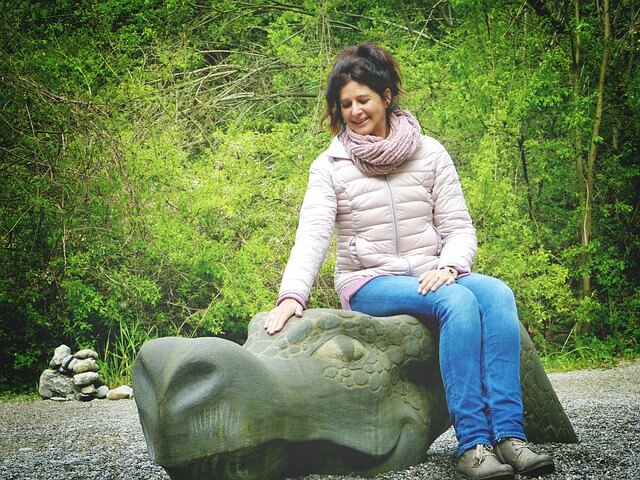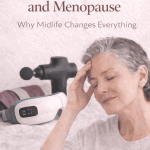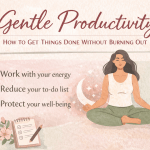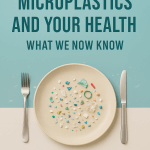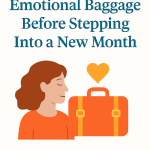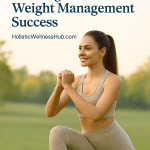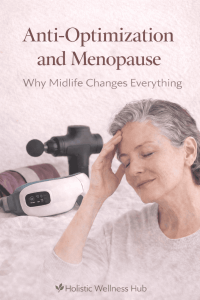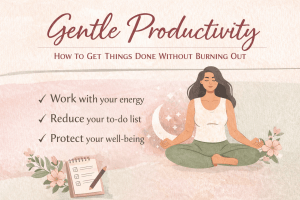How to maintain bone health as you age isn’t just a topic I researched—it’s something I’ve felt in my bones, quite literally. Back in March, I experienced a severe bout of lower back pain that left me nearly immobile. Despite medication and injections, the pain lingered for days. I was advised complete bed rest and even had to use a wheelchair for a short time. Though the intensity has eased, I still feel a mild ache when bending or doing certain movements. That experience was a wake-up call—a reminder that our bones, those silent supporters of our every step, deserve more attention than we often give them.
At Holistic Wellness Hub, I believe in empowering you with research-backed, practical wellness strategies that feel doable and nourishing—not overwhelming. So if you’re wondering how to maintain bone health as you age, you’re not alone. Bone density naturally declines over time, especially for women post-menopause, but the good news is: we can take proactive steps to stay strong, steady, and vibrant well into our golden years.
Let’s explore the essentials of bone health together—from calcium-rich foods to weight-bearing exercise and everything in between—so we can all move through life with strength, grace, and confidence.
1. Nourish Your Bones with the Right Nutrients
Let’s start with the foundation: nutrition. Your bones are living tissue, constantly being broken down and rebuilt. To support this process, your body needs a steady supply of key nutrients.
Calcium: The Building Block
Calcium is the superstar mineral for bone strength. Adults over 50 need about 1,200 mg per day. But instead of reaching straight for supplements, try to get most of your calcium from whole foods:
- Dairy products like yogurt, cheese, and milk
- Leafy greens such as kale, bok choy, and collard greens
- Fortified plant-based milks (almond, soy, oat)
- Sardines and canned salmon (with bones!)
Vitamin D: The Calcium Companion
Vitamin D helps your body absorb calcium effectively. Without it, even the most calcium-rich diet won’t do much good. Aim for:
- 15–30 minutes of sunlight exposure daily (depending on your skin tone and location)
- Fatty fish like salmon and mackerel
- Egg yolks and fortified cereals
- A supplement if your levels are low (get tested first!)
Magnesium and Vitamin K2: The Unsung Heroes
Magnesium helps convert vitamin D into its active form, while vitamin K2 directs calcium to your bones (and away from your arteries). Add these to your plate:
- Nuts and seeds (especially almonds and pumpkin seeds)
- Avocados, bananas, and whole grains
- Natto (fermented soybeans), hard cheeses, and egg yolks for K2
2. Move It or Lose It: Exercise for Bone Strength
If you’ve ever heard the phrase “use it or lose it,” it absolutely applies to your bones. Physical activity—especially weight-bearing and resistance exercises—stimulates bone formation and slows down bone loss.
Weight-Bearing Exercises
These are activities where you work against gravity while staying upright. Think:
- Brisk walking or hiking
- Dancing (yes, Zumba counts!)
- Climbing stairs
- Low-impact aerobics
Resistance Training
Lifting weights or using resistance bands builds muscle, which in turn supports and strengthens your bones. Aim for:
- 2–3 sessions per week
- Focus on major muscle groups: legs, hips, back, arms
- Start light and increase gradually
Balance and Flexibility
Preventing falls is just as important as building bone density. Practices like yoga, tai chi, and Pilates improve balance, coordination, and flexibility—key for staying steady on your feet.
3. Lifestyle Habits That Make or Break Bone Health
Beyond diet and exercise, your daily habits play a huge role in how your bones age.
Say No to Smoking and Excessive Alcohol
Smoking reduces blood flow to bones and interferes with calcium absorption. Alcohol, especially in excess, can weaken bones and increase fall risk. Moderation is key—if you drink, keep it to one glass a day.
Maintain a Healthy Weight
Being underweight increases your risk of osteoporosis, while being significantly overweight can stress your joints. Aim for a balanced, sustainable weight that feels good for your body.
Prioritize Rest and Recovery
Sleep is when your body repairs itself—including your bones. Chronic stress and poor sleep can raise cortisol levels, which may contribute to bone loss. Create a calming bedtime routine and aim for 7–9 hours of quality sleep.
4. Hormones and Bone Density: What You Should Know
Hormones, especially estrogen and testosterone, play a big role in maintaining bone density. That’s why women are at higher risk for osteoporosis after menopause.
Menopause and Bone Loss
The drop in estrogen levels during menopause can accelerate bone loss. If you’re in this stage of life, talk to your doctor about:
- Bone density testing (DEXA scan)
- Hormone replacement therapy (HRT), if appropriate
- Natural support like phytoestrogens (found in soy, flaxseeds, and legumes)
Get Tested, Stay Informed
A DEXA scan is a quick, painless test that measures your bone mineral density. It’s recommended for women over 65 and men over 70—or earlier if you have risk factors. Knowing your T-score helps you make informed decisions about your bone health strategy.
5. Natural Remedies and Emerging Trends
If you love exploring holistic wellness like I do, here are a few natural options that may support your bone health journey:
Collagen Supplements
Collagen is a major component of bone tissue. Some studies suggest that collagen peptides may help improve bone density when combined with calcium and vitamin D.
Herbal Allies
Certain herbs may support bone health, especially in postmenopausal women:
- Red clover (a natural source of phytoestrogens)
- Horsetail (rich in silica)
- Ashwagandha (supports stress resilience and hormonal balance)
Always consult your healthcare provider before starting new supplements—especially if you’re on medication.
Biohacking Tools
For the wellness adventurers out there, tools like vibration plates, red light therapy, and even weighted vests are being explored for their potential to stimulate bone growth. While research is still emerging, they may be worth looking into with professional guidance.
Final Thoughts: Aging Gracefully with Strong Bones
Aging doesn’t have to mean becoming fragile. With the right nutrition, movement, and lifestyle choices, you can maintain strong, resilient bones that support your vibrant, active life.
Remember, it’s never too early—or too late—to start caring for your bones. Whether you’re in your 30s, 50s, or beyond, every step you take today is an investment in your future strength and independence.
So go ahead—lace up those walking shoes, enjoy that leafy green salad, and soak up a little sunshine. Your bones will thank you.

